Special Report
Companies With the Best and Worst Reputations
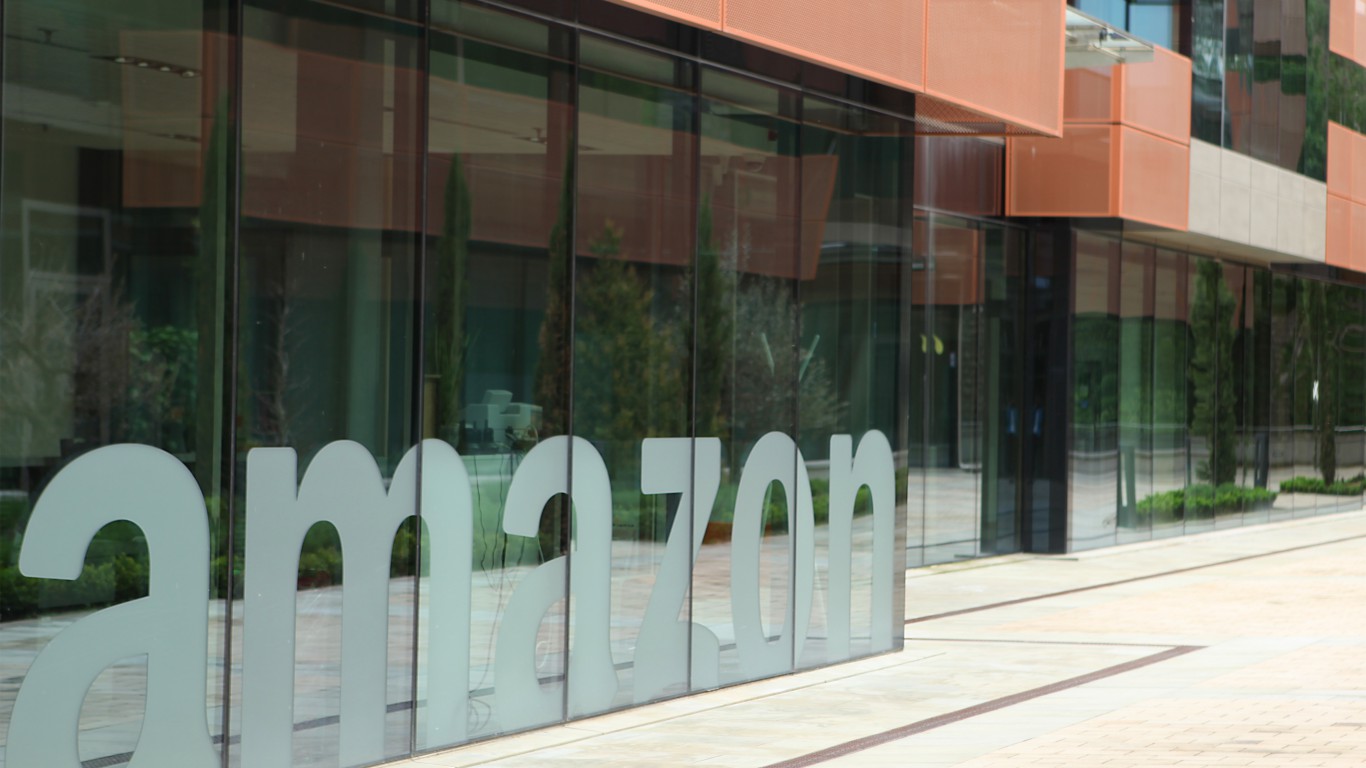
Published:
Last Updated:

Corporations rise and fall on their reputation, depending on the trust and confidence of their employees and customers, as well as the faith of their shareholders.
Companies spend decades burnishing their reputations. But as many companies and organizations ruefully discover, it does not take long for a scandal or corrupt corporate culture to taint a reputation for years. Rebuilding trust is among the most difficult issues a tarnished company can face. In the case of Facebook, concerns over privacy and unauthorized access to customers’ data have had a negative impact on the company’s reputation and the personal wealth of CEO Mark Zuckerberg — though he still ranks among the highest paid business leaders in the country. For other companies like Sears Holdings, its reputation has waned because of poor service, few items on shelves, and store closures.
For the 20th consecutive year, the Harris Poll Reputation Quotient ranked the world’s most visible companies and organizations by reputation. The organizations considered range from online retailers like Amazon.com to brick and mortar shopping centers like Walmart; and from the massive U.S. government down to regional grocery chains like Publix. The poll asked respondents to rate each company based on six measures: social responsibility, products and service, emotional appeal, leadership, financial performance, and workplace environment.
Grocery store and supermarket chains Wegmans and Publix enjoy good reputations because of their connections to the community and contributions to social causes. For consumer electronics companies Sony and Samsung, which also enjoy good reputations, innovation was key.
In the most recent Harris Poll ranking, companies with bad reputations were found in the financial services and telecommunications areas, and that has been typical in previous years. These companies were chided for bad service, not speedily addressing missteps, and failing to provide a supportive work environment.
To determine America’s most and least reputable companies, 24/7 Wall St. reviewed reputation scores of the nation’s 100 most recognizable companies from the 2019 Harris Poll Reputation Quotient (RQ), produced by market research firm Harris Insights and Analytics. The study consists of two parts: a nominations stage in which consumers identify the nation’s most visible companies, followed by a ratings stage, in which each company’s reputation is measured on a scale of 0-100. Additional company information came from SEC filings and other publicly available documents.
Click here to see companies with the best and worst reputations.
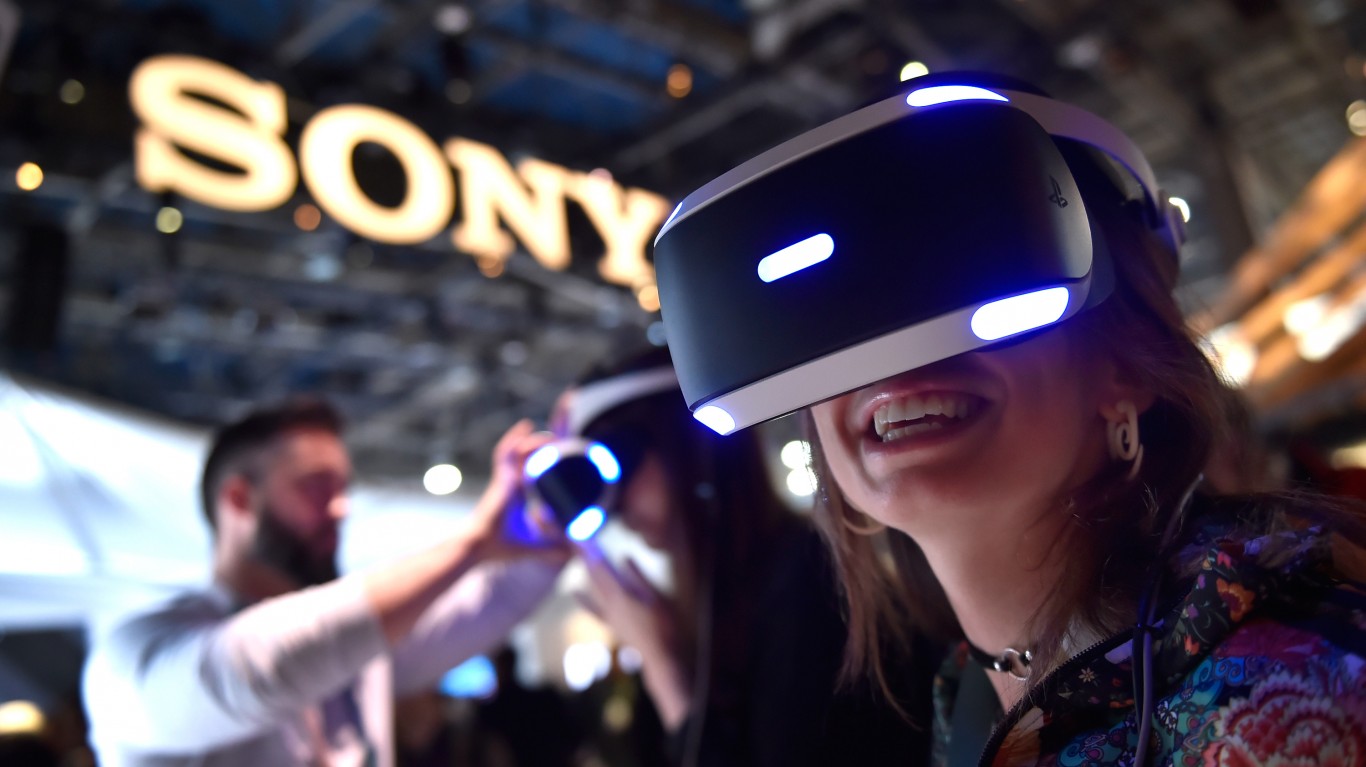
10. Sony
> 2019 reputation quotient: 79.4
> 2018 reputation quotient: 78.1
> Industry: Consumer electronics
> CEO: Kenichiro Yoshida
Consumer electronics company Sony has maintained a strong corporate reputation and is one of the most recognized Japanese businesses in the world. Historically, Sony has had a reputation as an innovative company, introducing products such as the Walkman cassette player in 1979 and the popular PlayStation game consoles. Sony is credited with reducing the size of electronics from bulky products to smaller, more manageable items that are more mobile.
Besides ranking highly in the Harris Poll, Sony earns kudos from the U.S.-based Ethisphere Institute as one of the world’s most ethical companies in 2019. Sony also annually ranks among Japan’s top global brands by Interbrand.
[in-text-ad]
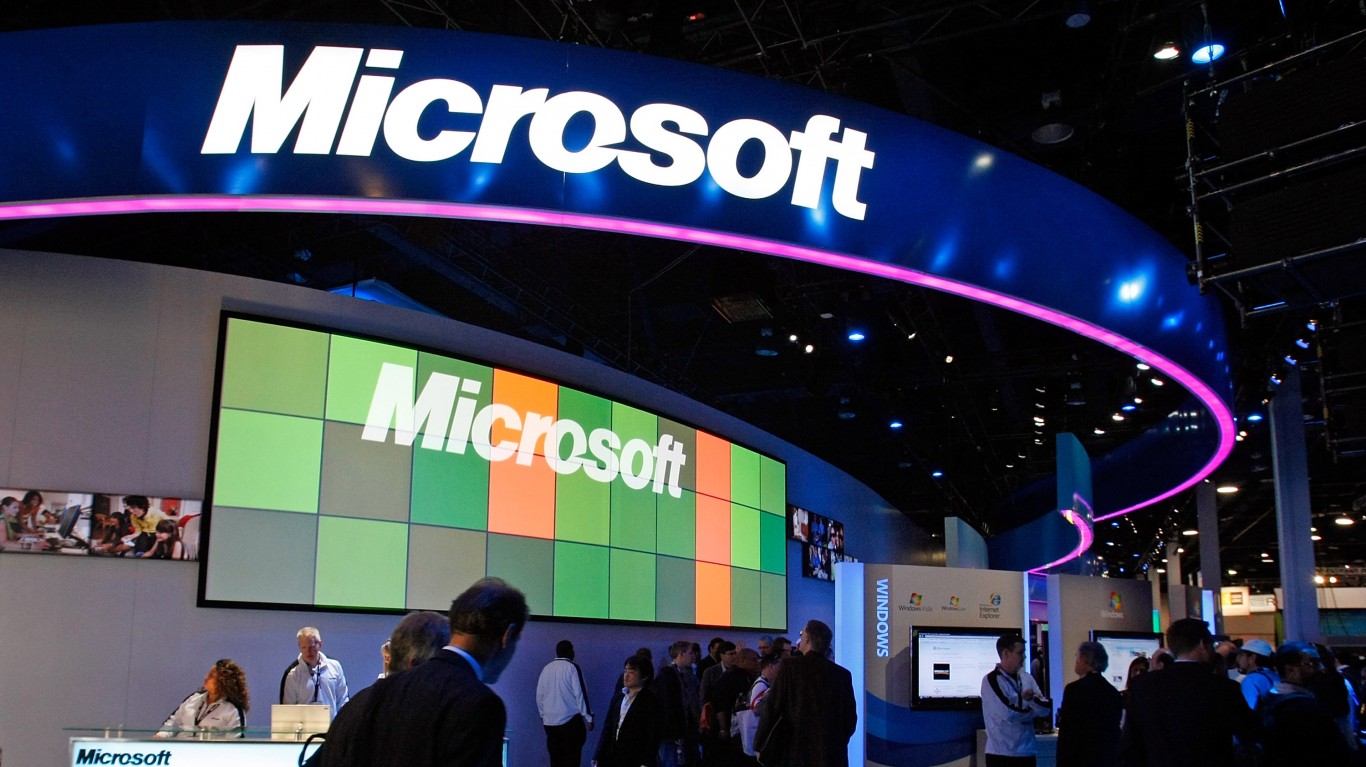
9. Microsoft
> 2019 reputation quotient: 79.7
> 2018 reputation quotient: 80.4
> Industry: Technology
> CEO: Satya Nadella
Microsoft, the brainchild of Bill Gates and the late Paul Allen, almost single-handedly transformed the American home and workplace in the 1980s by making computers accessible to virtually everyone. After Gates stepped down as CEO in 2000, the leadership mantle was assumed by Steve Ballmer, a former classmate of Gates’ at Harvard University. Today, the company is run by Satya Nadella, a well-seasoned Microsoft executive who served in leadership capacities in the enterprise and consumer business sides of the company. Under Nadella, Microsoft has raised its presence in cloud infrastructure and services business.
Nadella enjoys a 96% approval rating among his employees on the job-hunting site Glassdoor. Employees say they like the pay, work-life balance, and growth opportunities under current leadership.
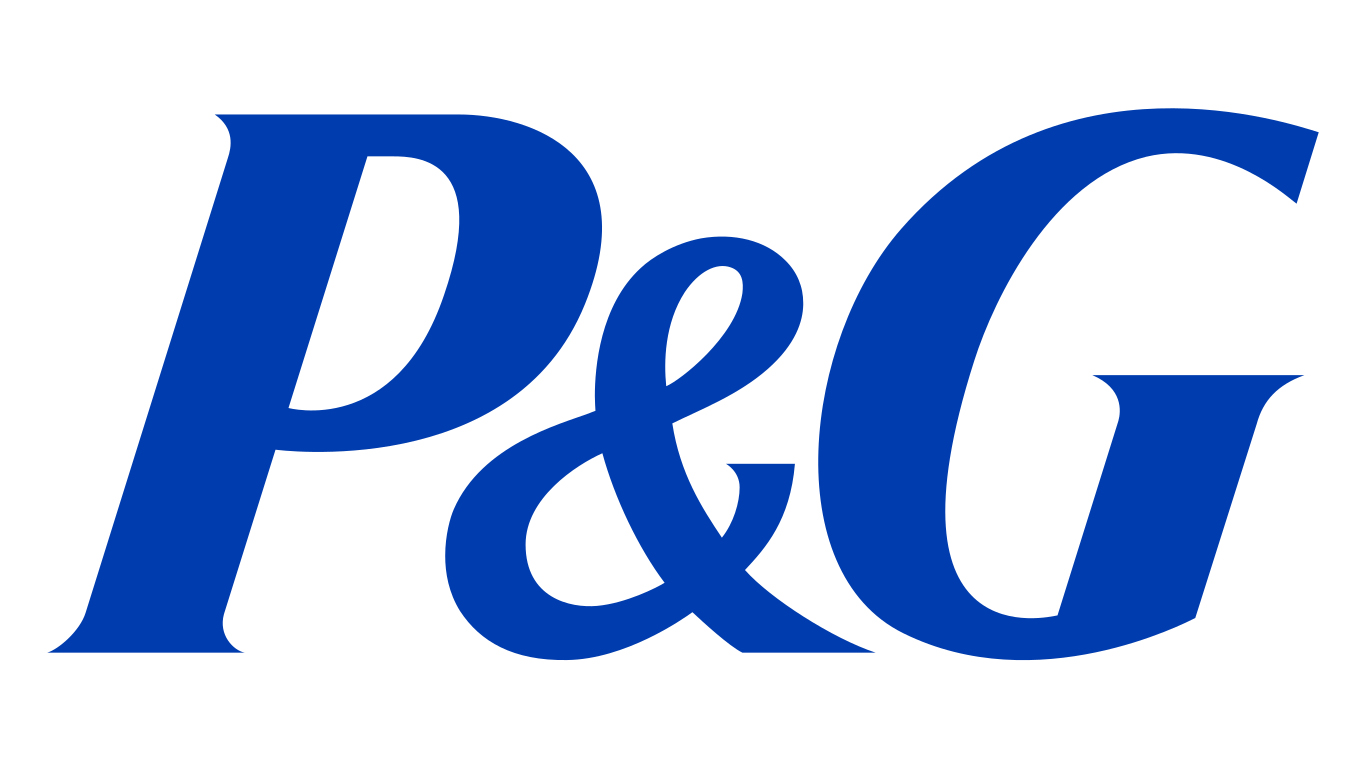
8. Procter & Gamble Co.
> 2019 reputation quotient: 79.8
> 2018 reputation quotient: 79.3
> Industry: Consumer products
> CEO: David S. Taylor
Consumer products company Procter & Gamble says it is trying to make its products accessible to all people. At the workplace, the Cincinnati, Ohio-based company has been named one of the top 50 companies for diversity by the publication Diversity Inc.
In addition, 181-year-old P&G is aiming to innovate its personal hygiene products. This year, for the first time, the maker of household name products like Tide detergent attended the Consumer Electronics Show in Las Vegas and introduced personal hygiene and beauty products infused technology. These products included a heated razor from Gillette, and a toothbrush that uses artificial intelligence that understands how users are brushing their teeth and gives feedback on how they can improve oral health.
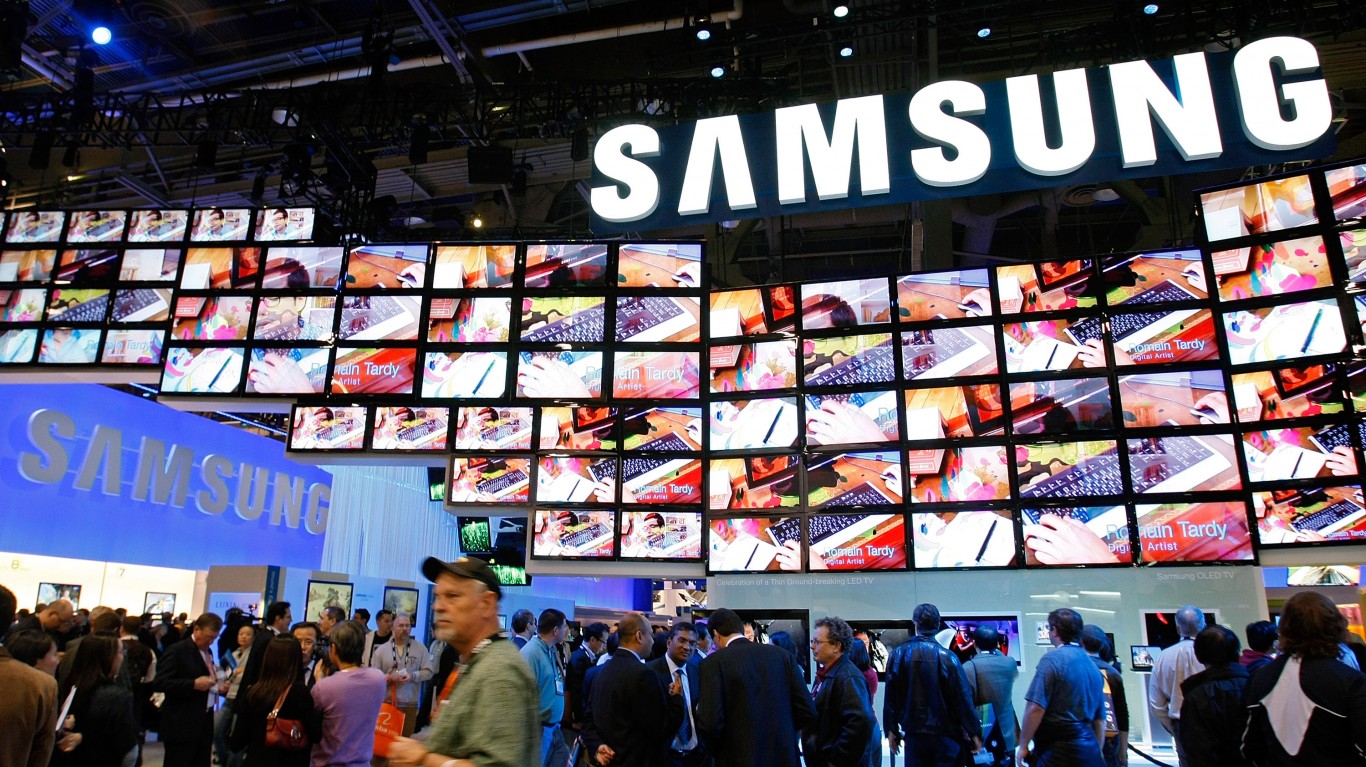
7. Samsung
> 2019 reputation quotient: 80.0
> 2018 reputation quotient: 77.6
> Industry: Consumer electronics
> CEO: Kim Hyun Suk, Koh Dong Jin, Kim Ki Nam
South Korean consumer electronics company Samsung is the highest ranking foreign company on this list. The company gains its rarefied reputation largely through innovation. Samsung introduced the Galaxy smartphone 10 years ago, and it continues to improve on the product. Consumer electronics reviewers cite the latest generation of the Galaxy smartphone for its improved camera and video functionality. Samsung has been slugging it out with Apple for smartphone supremacy, and holds an edge over its rival in global market share. Samsung has also been at the forefront of wearable technology.
Samsung is also ranked as the sixth best global brand by Interbrand, and ranks fifth among the 50 most innovative companies in 2018 by Boston Consulting Group.
[in-text-ad-2]
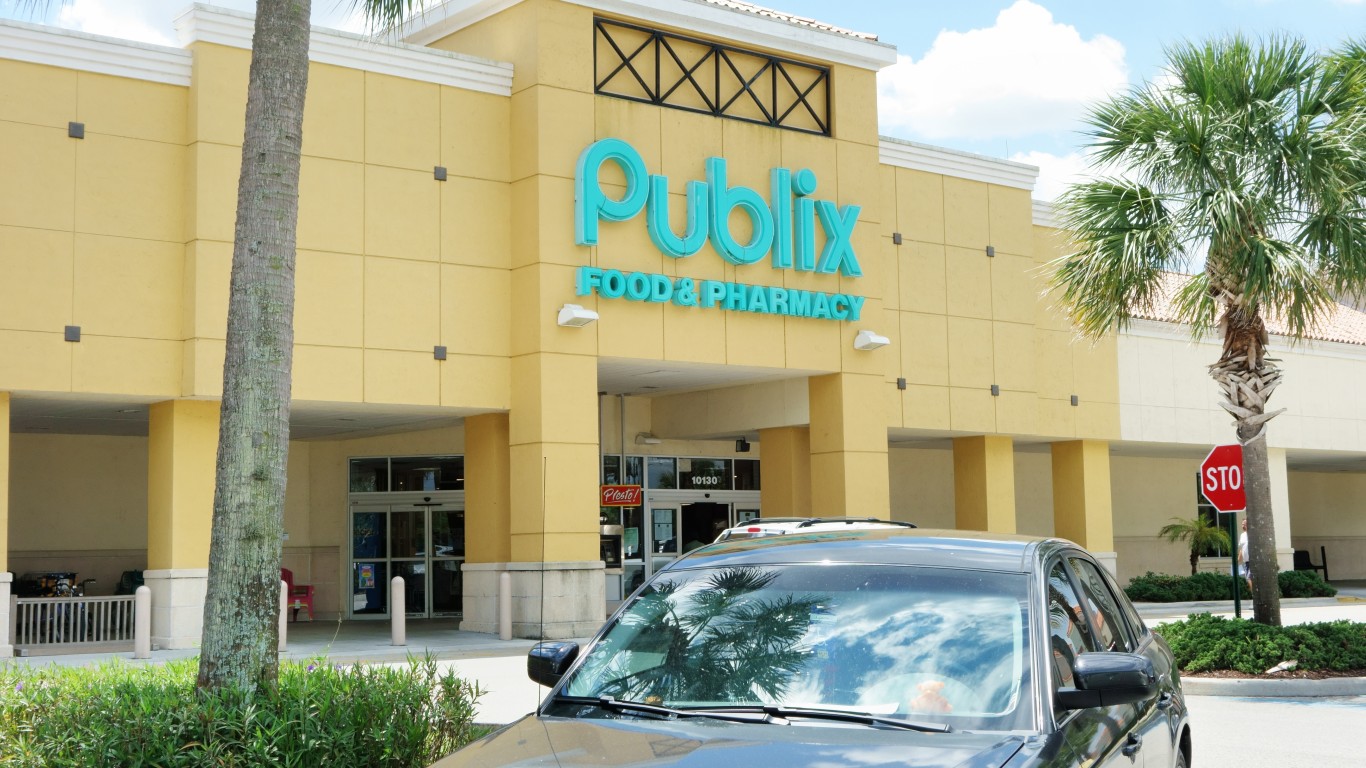
6. Publix Super Markets
> 2019 reputation quotient: 80.3
> 2018 reputation quotient: 80.8
> Industry: Supermarkets
> CEO: Todd Jones
The regional grocery store chain was among the top 10 companies with the best reputations last year, and it returns to the top 10. Publix Super Markets has 1,215 locations in seven southern states, employs about 190,000 people, and reports nearly $35 billion in annual revenue. Publix also is the largest employee-owned grocery chain in the United States. Business magazine Fortune has named Publix on its list of “100 Best Companies to Work For” every year since 1998. Forbes also has listed the Lakeland, Florida-based company as one of “America’s Best Employers.”
Community involvement is important to Publix, according to the company. Publix was ranked second among the Top Companies for Social Responsibility by Harris Poll in 2017.
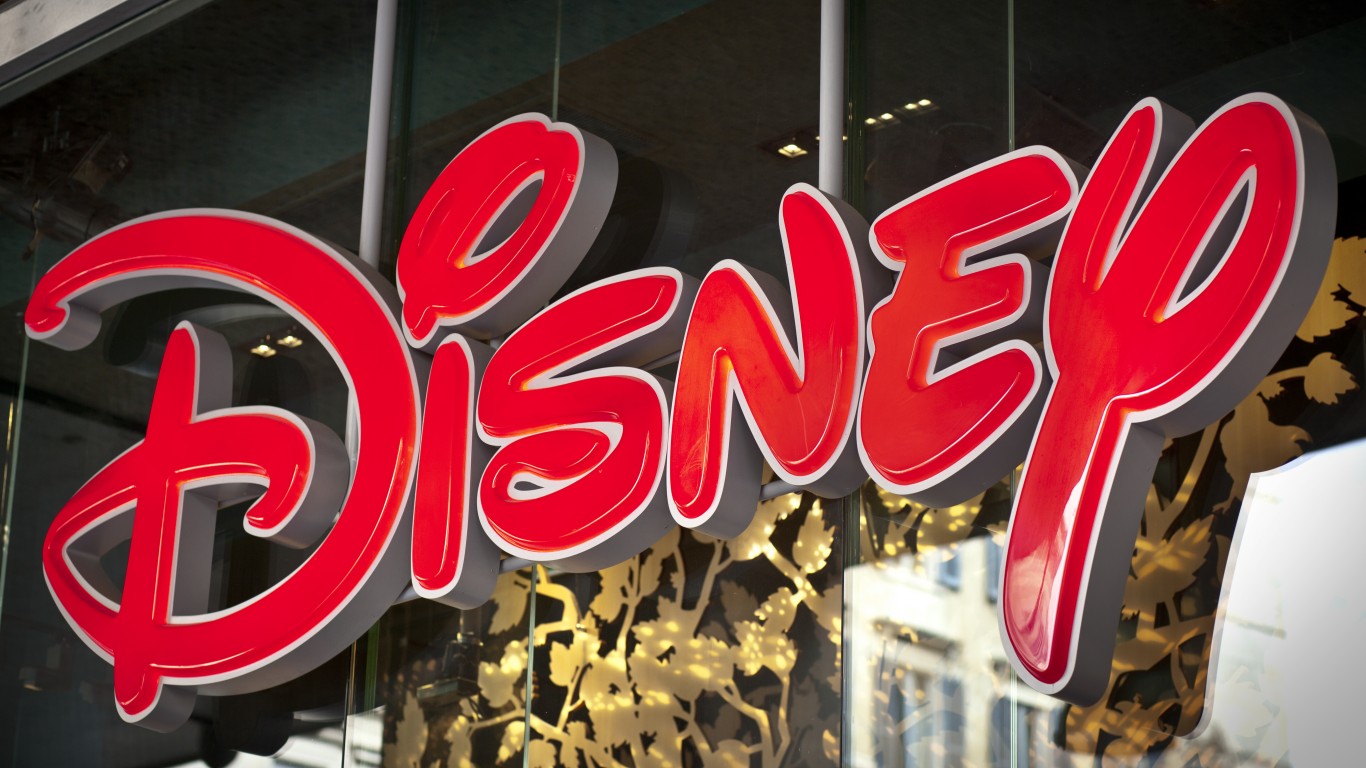
5. The Walt Disney Company
> 2019 reputation quotient: 80.4
> 2018 reputation quotient: 81.5
> Industry: Entertainment
> CEO: Robert Iger
The Walt Disney Company has one of the best reputations of any company. The media colossus has businesses in television, motion pictures, and theme parks, and is one of the most recognized brands in the world. Disney’s successful, and often innovative, forays into multiple entertainment mediums keeps it in the pantheon of great American companies.
The reputation of the Burbank, California-based company also likely benefits from its philanthropic pursuits. Disney donated over $348 million in 2017 alone to nonprofits that benefit needy children, families, and communities. The company is also environmentally conscious, aiming to reduce net emissions by 50% by 2020.
[in-text-ad]
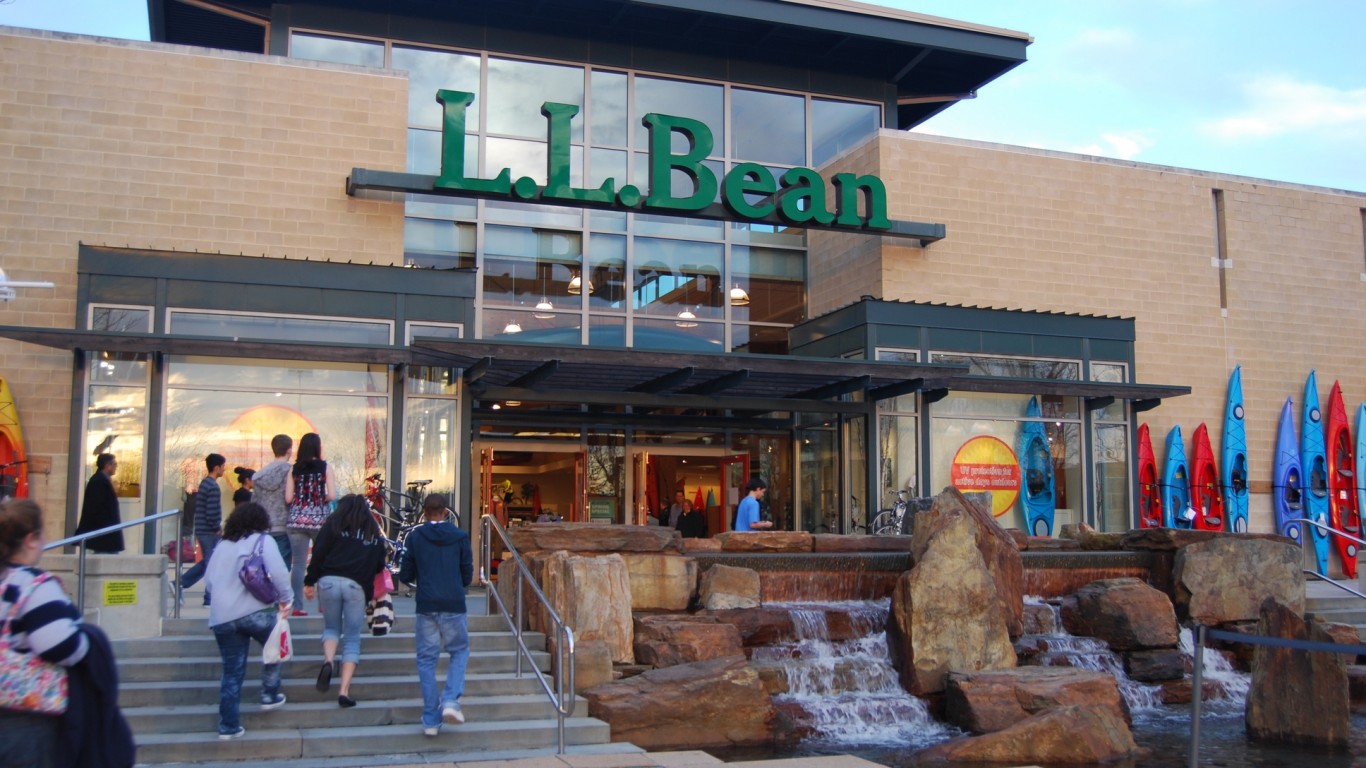
4. L.L.Bean
> 2019 reputation quotient: 80.7
> 2018 reputation quotient: 79.8
> Industry: Retail
> CEO: Stehen Smith
L.L. Bean has developed a reputation for making quality outdoor apparel and footwear products — even after changing its century-old lifetime return policy in 2018. Though revocation of the long standing policy was met with some customer relations blowback, L.L. Bean still offers a one-year window after purchase in which dissatisfied customers can return a product for a full refund. The Freeport, Maine-based company has been highly regarded also as a company to work for. About two out of three employees who reviewed the company on Glassdoor would recommend the company to a friend, and 81% approved the job done by CEO Stephen Smith.
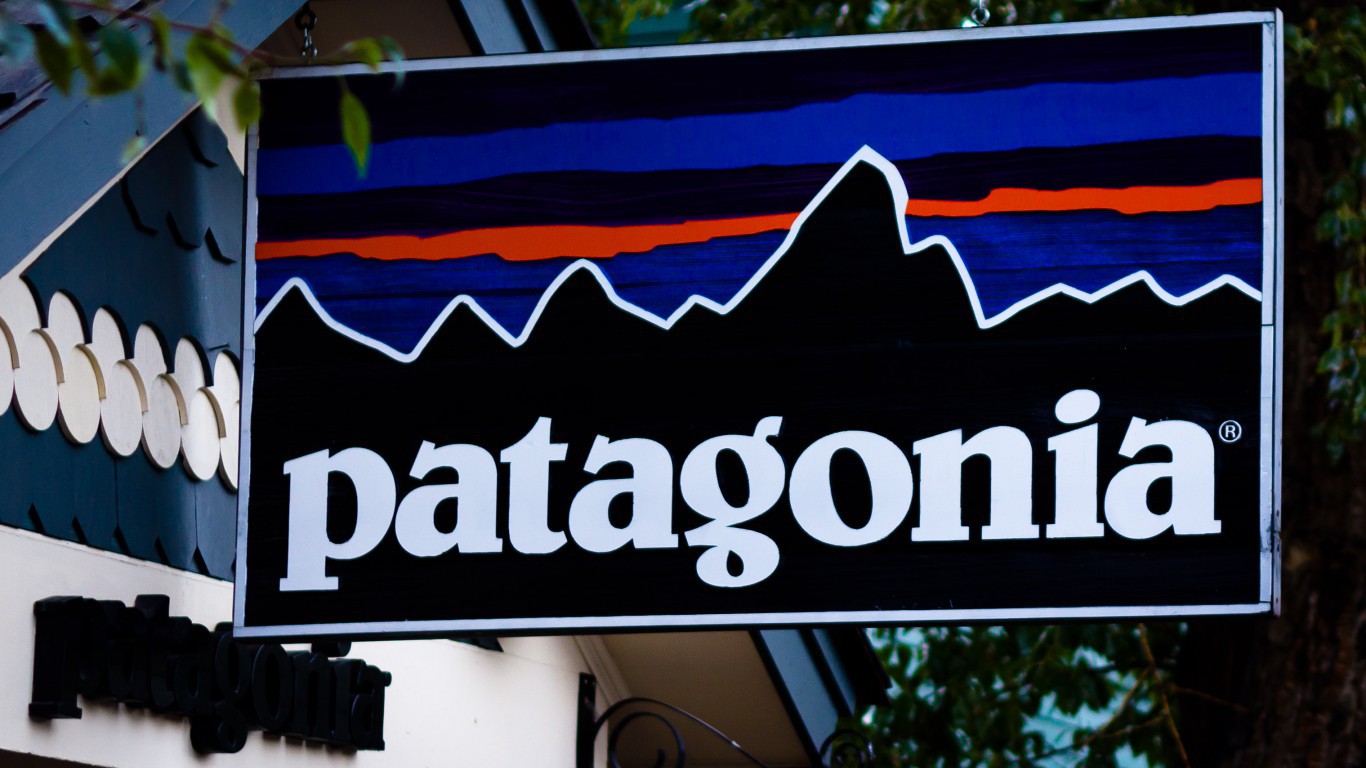
3. Patagonia
> 2019 reputation quotient: 81.4
> 2018 reputation quotient: 80.4
> Industry: Retail
> CEO: Rose Marcario
Patagonia, along with L.L. Bean, is one of two clothing companies to rank on this list. Patagonia has built its reputation on the quality of its apparel. The company guarantees the quality of all of its products and offers refunds, replacements, or repairs for customers who are not satisfied.
Founded in 1972 by outdoorsman and visionary Yvon Chouinard, Patagonia has also built its reputation through a longstanding commitment to environmental stewardship. For nearly three and a half decades, the company has donated 1% of all revenue to environmental organizations. The company also had a high profile initiative in 2016, donating 100% of revenue from online sales on Black Friday — the biggest shopping day of the year — to environmental groups. That day, online sales totalled a record breaking $10 million — five times the anticipated volume.
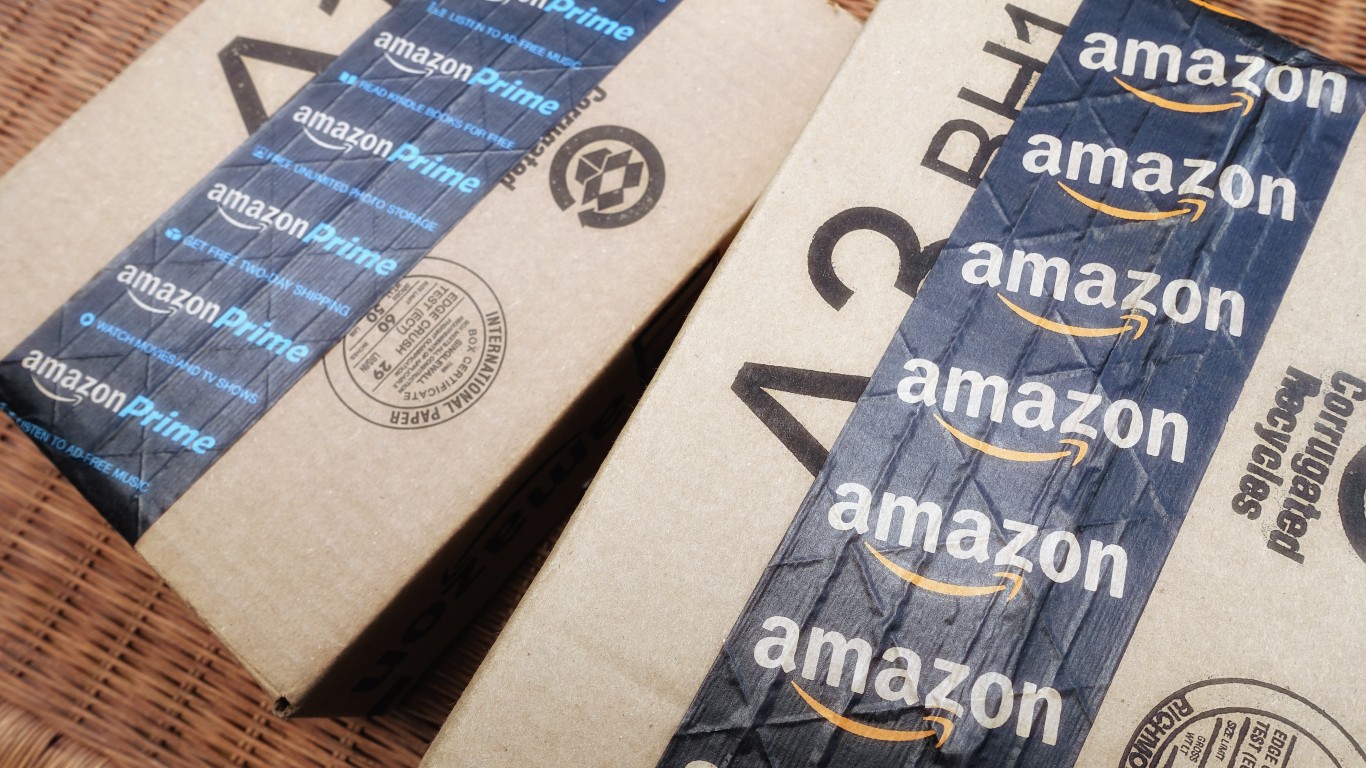
2. Amazon.com
> 2019 reputation quotient: 82.3
> 2018 reputation quotient: 83.2
> Industry: E-commerce
> CEO: Jeff Bezos
E-commerce powerhouse Amazon.com disrupted the retail landscape as it branched out from selling books online. Amazon, with a market cap of more than $867 billion, competes against media companies such as Netflix, internet search businesses like Google, and has gone up against Uber for on-demand transportation. The company gets high marks from its own employees. Among employee reviews on Glassdoor, 74% would recommend the company to a friend, and 85% approved of CEO Jeff Bezos, the richest man in the world.
Amazon conducted a very public search for a second headquarters that drew in submissions from 238 cities in North America. The Seattle, Washington-based company settled on splitting the second headquarters location between Long Island City in Queens and Arlington County, Virginia. Amazon, however, announced plans to cancel its Queens location amid criticism over its anticipated $3 billion in tax-breaks and allegations from activists and unions that the company mistreats its workers.
[in-text-ad-2]
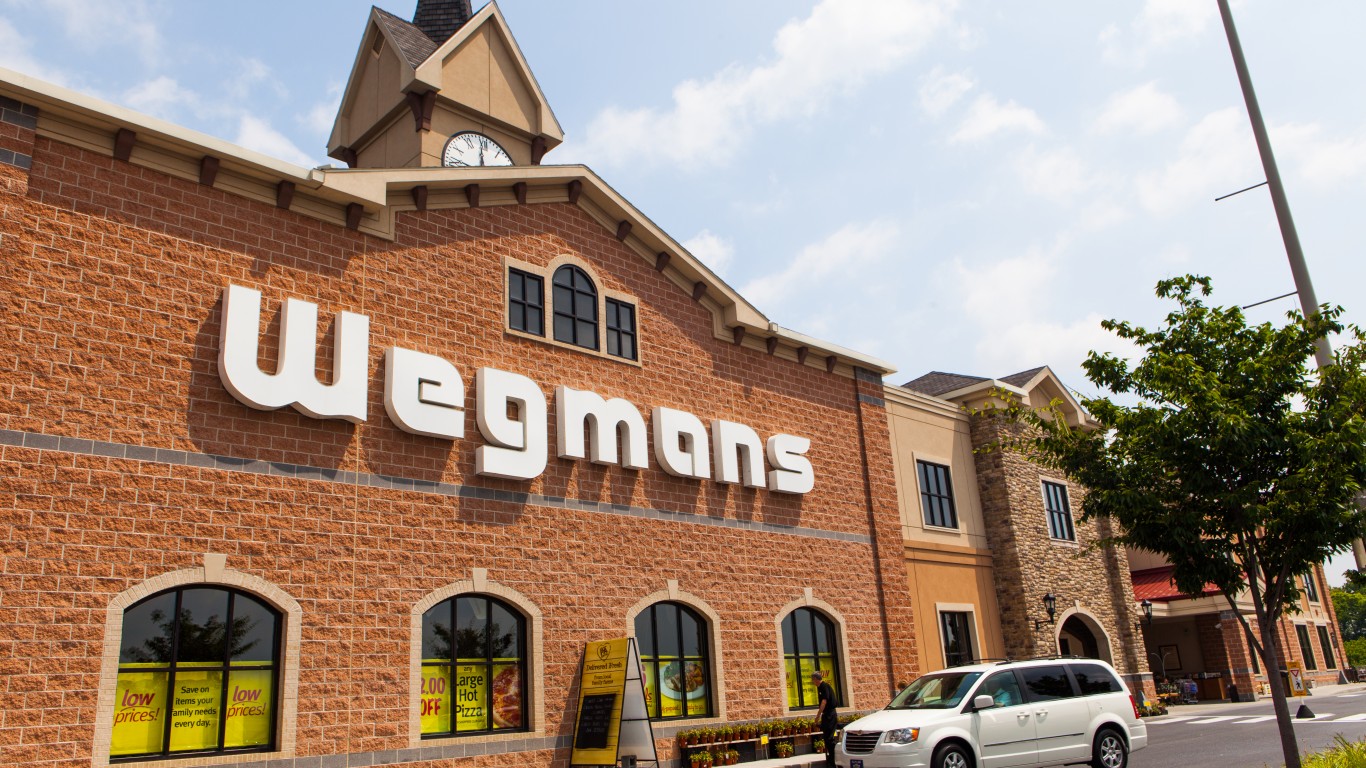
1. Wegmans
> 2019 reputation quotient: 83.0
> 2018 reputation quotient: 82.8
> Industry: Supermarkets
> CEO: Colleen Wegman
Wegmans has the best reputation of any company on the list, after finishing second last year. The supermarket chain has 98 stores in northeastern and mid-Atlantic states and employs about 49,000 people. At the top of the corporate food chain of the family-owned Wegmans are Chairman Danny Wegman; President and CEO Colleen Wegman, Danny’s daughter; and Senior Vice President Nicole Wegman, another daughter.
Wegmans was cited for its high rankings in culture, ethics and citizenship categories in the Harris Poll. The chain is also recognized for hiring local residents. Wegmans has been named one of the 100 Best Companies to Work For by Fortune since the list was first introduced in 1998.
Customers like the store for its specialty department service and high standards for produce. Employees hold Wegman’s in high regard because they believe the company truly cares about them. Wegmans also offers scholarships and tuition assistance to its employees. Not surprisingly, 84% of employees who reviewed the company for Glassdoor would recommend Wegmans to a friend, and 94% approved of the job of CEO Colleen Wegman.

10. Comcast
> 2019 reputation quotient: 61.4
> 2018 reputation quotient: 67.1
> Industry: Telecommunications
> CEO: Brian L. Roberts
Cable television company Comcast has one of the worst reputations of any company in America. Consumers gave the Philadelphia, Pennsylvania-based company just 60 out of 100 on the American Customer Satisfaction Index for its internet service, 58 out of 100 for its subscription television service, and 65 out of 100 for its fixed-line telephone service. These scores were all lower than the cable industry average.
The company has been the subject of several lawsuits in recent years for deceptive pricing practices. Washington state sued the cable giant for $100 million in 2016. The company settled with the state of Massachusetts for $950,000 in November 2018. Currently, the company is facing a lawsuit filed by the Minnesota Attorney General.
[in-text-ad]

9. Bank of America
> 2019 reputation quotient: 60.9
> 2018 reputation quotient: 64.9
> Industry: Financial services
> CEO: Brian Moynihan
Like many money-center banks, Bank of America’s reputation suffered following the financial crisis. Banks in general have had to deal with a blow to their reputation because customers did not believe the financial institutions were looking after their best interest.
A recent survey by the publication American Banker showed that Bank of America had the second worst reputation among consumers of any bank in its survey, trailing only Wells Fargo, another company on this list. Bank of America, based in Charlotte, North Carolina, didn’t endear itself to the bank patrons in 2012 after public outrage compelled the bank to drop a plan to impose a $5 fee for using debit cards to make purchases.

8. Goldman Sachs
> 2019 reputation quotient: 60.0
> 2018 reputation quotient: 61.4
> Industry: Financial services
> CEO: David Solomon
The reputation of investment bank Goldman Sachs was severely damaged a decade ago because of less-than-transparent lending and investment practices during the subprime financial crisis. The bank had been slowly rebuilding its reputation until political candidates during the 2016 presidential campaign made disparaging comments about the bank.
Though Goldman Sachs’s image has improved considerably in recent years — partially due to the 2018 departure of Lloyd Blankfein as CEO, a position he held during the financial crisis — the company still has some work to do to improve its reputation. This week, it was reported that Goldman Sachs’ U.K. unit must pay a fine of $45 million for failing to provide accurate information pertaining to 220 million transactions between 2007 and 2017.

7. Facebook
> 2019 reputation quotient: 58.1
> 2018 reputation quotient: 74.1
> Industry: Social media
> CEO: Mark Zuckerberg
Facebook dealt with a series of scandals involving privacy concerns, hate speech, and fake news, all of which conspired to erode the trust of its customers as well as its reputation. CEO Mark Zuckerberg spent much of last year trying to repair the damage.
The scandals also hurt Facebook’s stock and the personal worth of Zuckerberg. Facebook shares plunged over 40% to a 2018 low of $124.06 in late-December. As for Zuckerberg, after his personal wealth soared to around $86 billion in 2018, it fell to around $53 billion.
[in-text-ad-2]
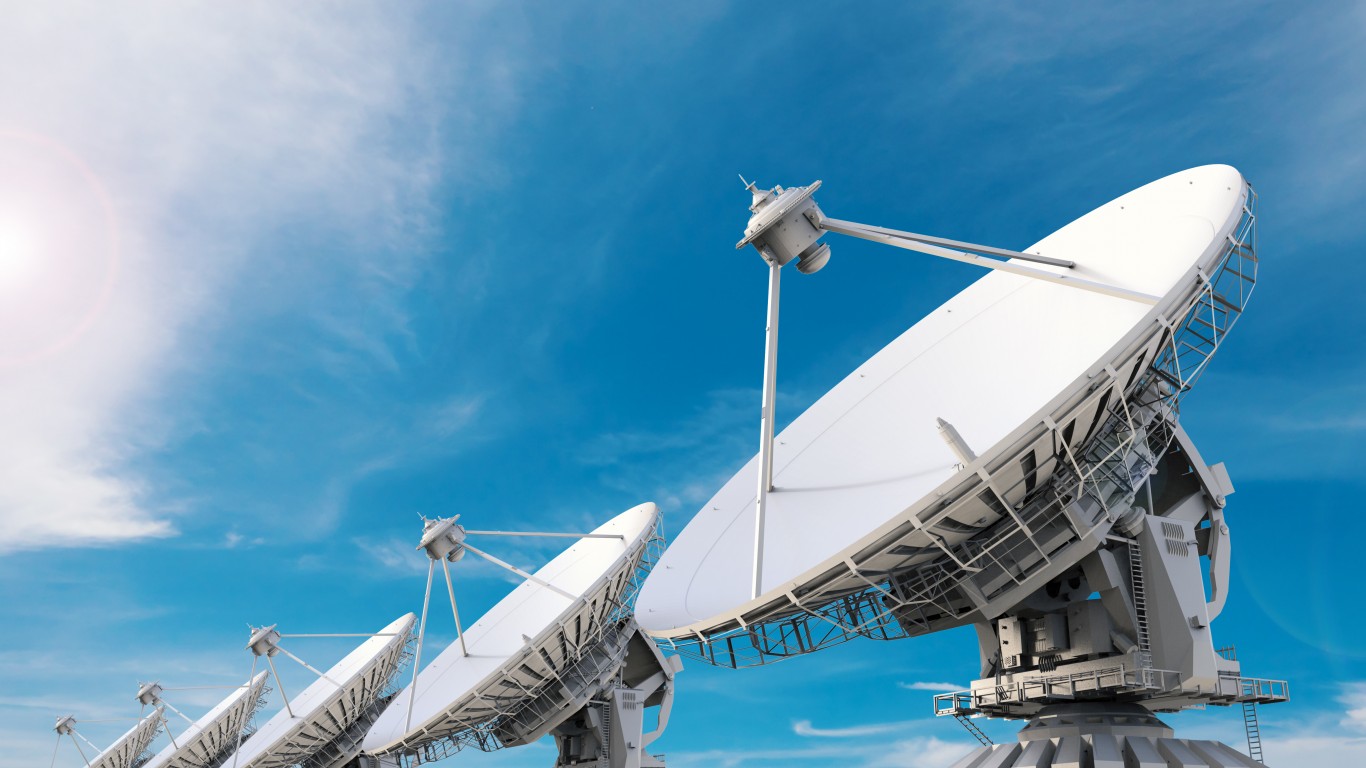
6. Dish Network
> 2019 reputation quotient: 56.9
> 2018 reputation quotient: 63.0
> Industry: Telecommunications
> CEO: W. Erik Carlson
Cable television providers like Dish Network usually appear on lists of companies with bad reputations because of customer-service issues. Customers have been voting with their feet and been cutting the cable cord because of what they believe are monthly costs that are too high, and they have been switching to alternative viewing options like streaming services such as Sling. Employees at Dish are not thrilled with the company either. At the employer-review site Glassdoor, only 37% of Dish workers would recommend the Englewood, Colorado-based company to a friend.
In attempt to remedy its poor reputation, Dish rolled out a customer listening campaign in 2017 that featured a so-called “spokeslistener” in a television ad. The company also created a feature on its website for customers to leave comments and complaints. Whether these features improve the company’s customer service or help its reputation remains to be seen. In the Harris reputation poll, it is the lowest ranking cable television provider.
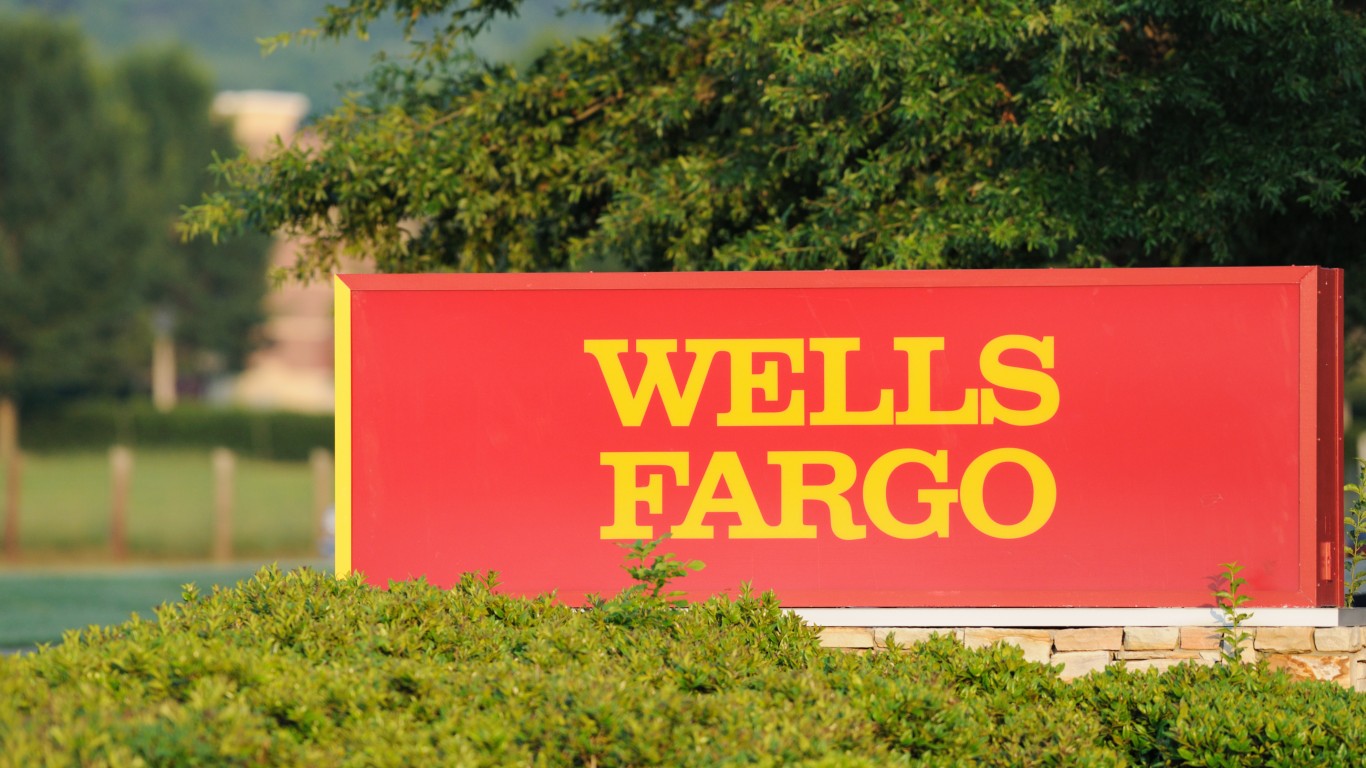
5. Wells Fargo & Company
> 2019 reputation quotient: 52.7
> 2018 reputation quotient: 57.8
> Industry: Financial services
> CEO: Timothy J. Sloan
A recent technical glitch at Wells Fargo that prevented customers from seeing paychecks and direct deposits in their online and mobile banking accounts was a reminder of the recent troubles at the California-based financial institution. For more than two years, Wells Fargo was involved in a series of scandals that severely damaged its reputation. Wells Fargo was blamed for creating millions of false accounts, and it announced in 2016 it had discharged about 5,300 workers over a several-year period for this practice. The bank also confessed to charging customers for mortgage fees that they were not responsible for and for paying for car insurance they did not need. Wells Fargo also had to provide refunds to customers for pet insurance, home warranties, and other products they did not understand they were charged for.
Wells Fargo has run mea culpa commercials on television and in print ads in an attempt to restore customer trust in the financial institution. Even so, the bank has had trouble expanding its customer base in its corporate bank unit. It is also the lowest ranked financial institution on this list.
[in-text-ad]
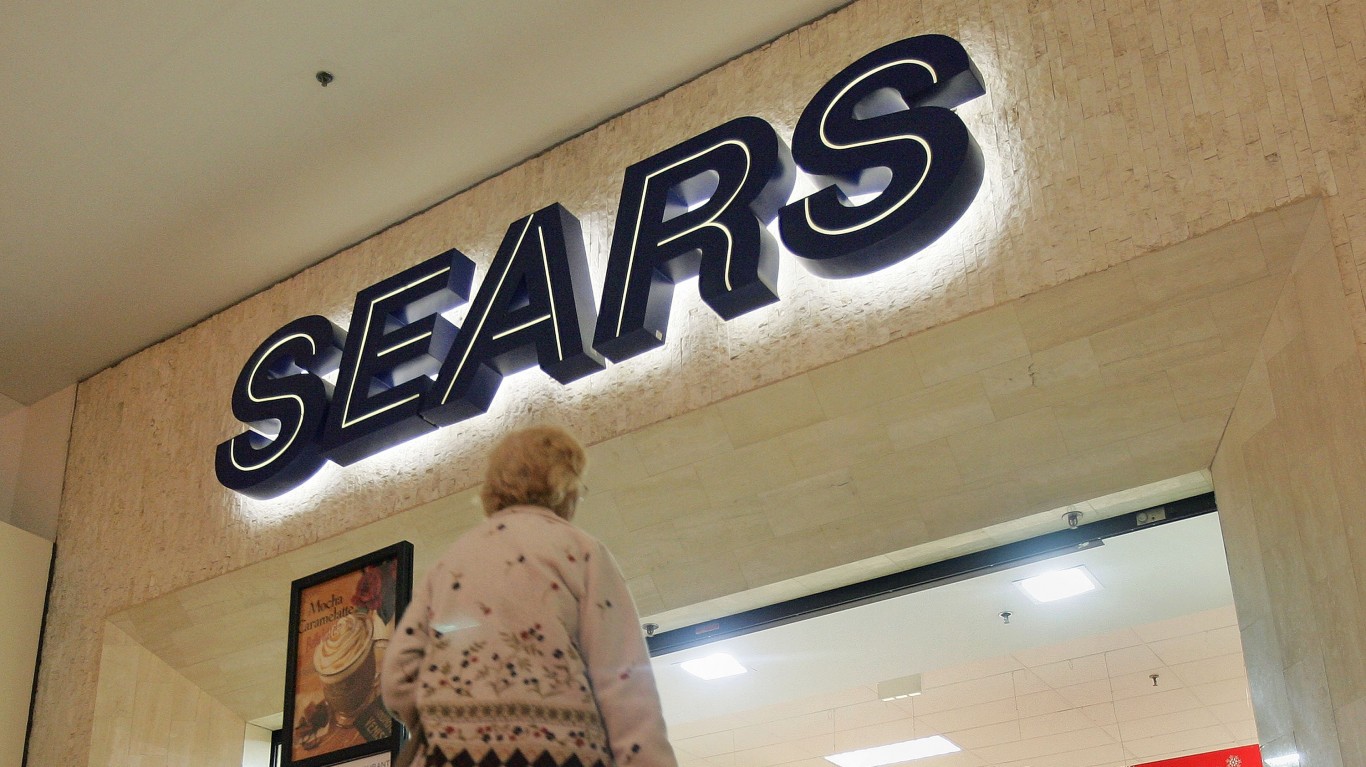
4. Sears Holdings Corporation
> 2019 reputation quotient: 52.3
> 2018 reputation quotient: 64.1
> Industry: Retail
> Office of CEO: Robert A. Riecker, Leena Munjal, Gregory Ladley
Sears Holdings Corporation is the poster child for the retail apocalypse. Once an innovator because of its catalogue sales and warehouse infrastructure, the Hoffman Estates, Illinois-based company that filed for bankruptcy in October was slow to see the threat of e-commerce. Sears retail franchise has been undercut by Walmart and Amazon on price. The company has gone through waves of store closings and has sold off brands such as Craftsman. What stores remained had few items on the shelves, and patrons complained of poor customer service.
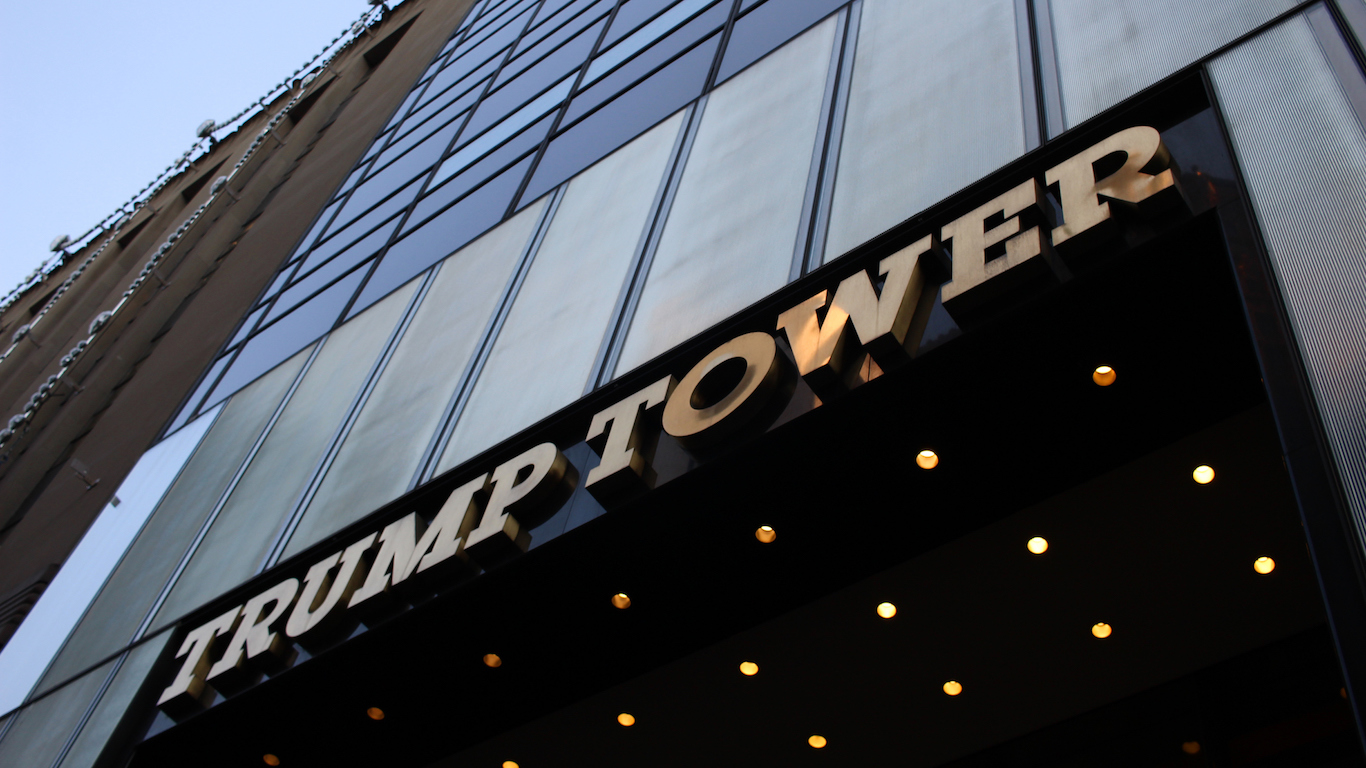
3. The Trump Organization
> 2019 reputation quotient: 50.1
> 2018 reputation quotient: 57.9
> Industry: Real estate, hospitality
> CEO: Donald Trump Jr.
The Trump Organization’s reputation has fallen in esteem since the company’s namesake became president of the United States over two years ago. The real estate company operates a winery, luxury hotels, and international golf courses. It also operated Trump University, a for-profit enterprise that was open from 2005 to 2010 and taught real estate courses. A barrage of lawsuits forced it to close over claims it defrauded students.
The Trump Organization is now run by Trump’s sons Donald Trump Jr. and Eric Trump. The company has come under scrutiny for possible conflicts of interests between the president’s family operating the business and Trump’s performance as president.
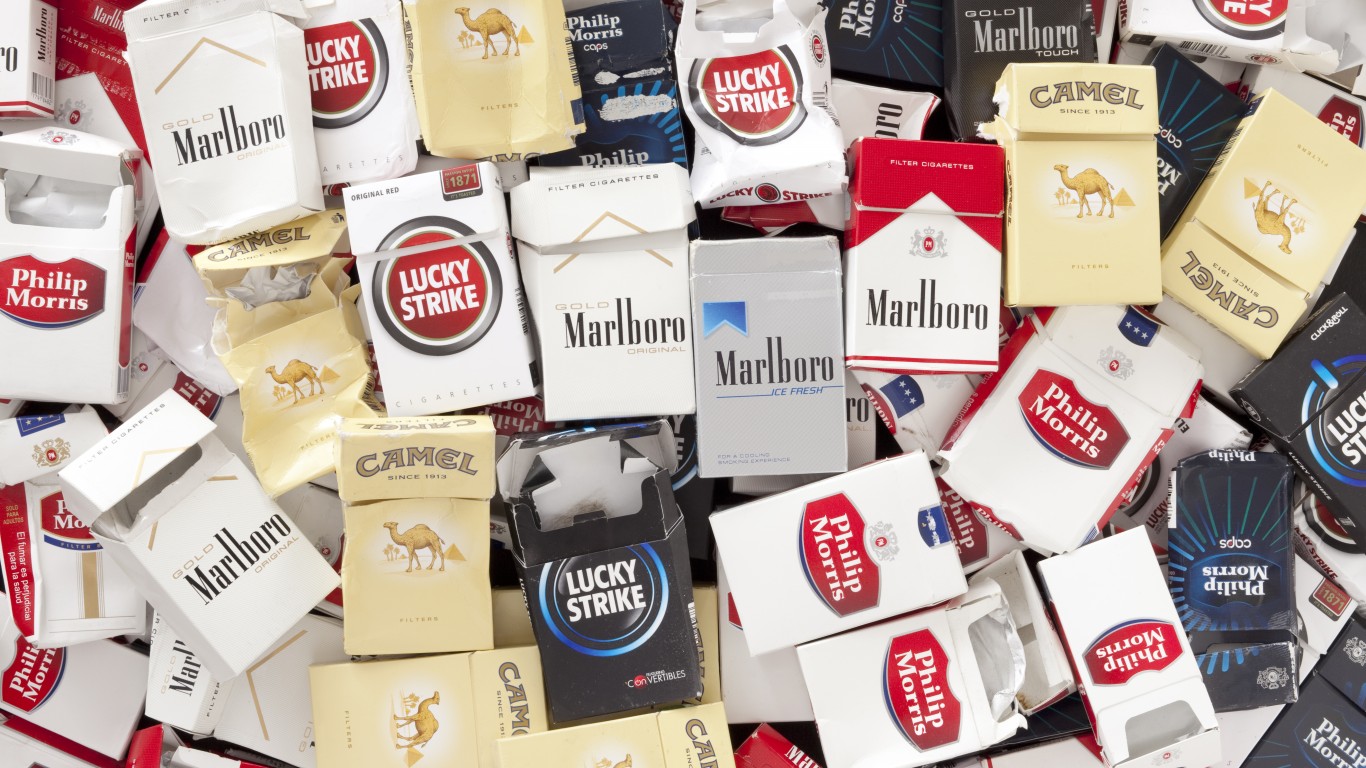
2. Phillip Morris
> 2019 reputation quotient: 49.4
> 2018 reputation quotient: N/A
> Industry: Consumer products
> CEO: Andre Calantzopoulos
Cigarette maker Philip Morris hoped it could have a discussion with the World Health Organization earlier this year about products it is developing to move smokers away from cigarettes to what the company says are less-risky options such as vaping. But the WHO would have none of it, saying the organization’s rules prevented it from dealing directly with tobacco makers. Philip Morris produces 813 billion cigarettes a year — not including those sold in the U.S. — but cigarette use is declining worldwide as more people become aware of the health risks of tobacco use.
The New York-based company’s shares have been losing value in recent years as well, declining more than 25% since reaching a five-year high of $121.84 on June 16, 2017.
[in-text-ad-2]
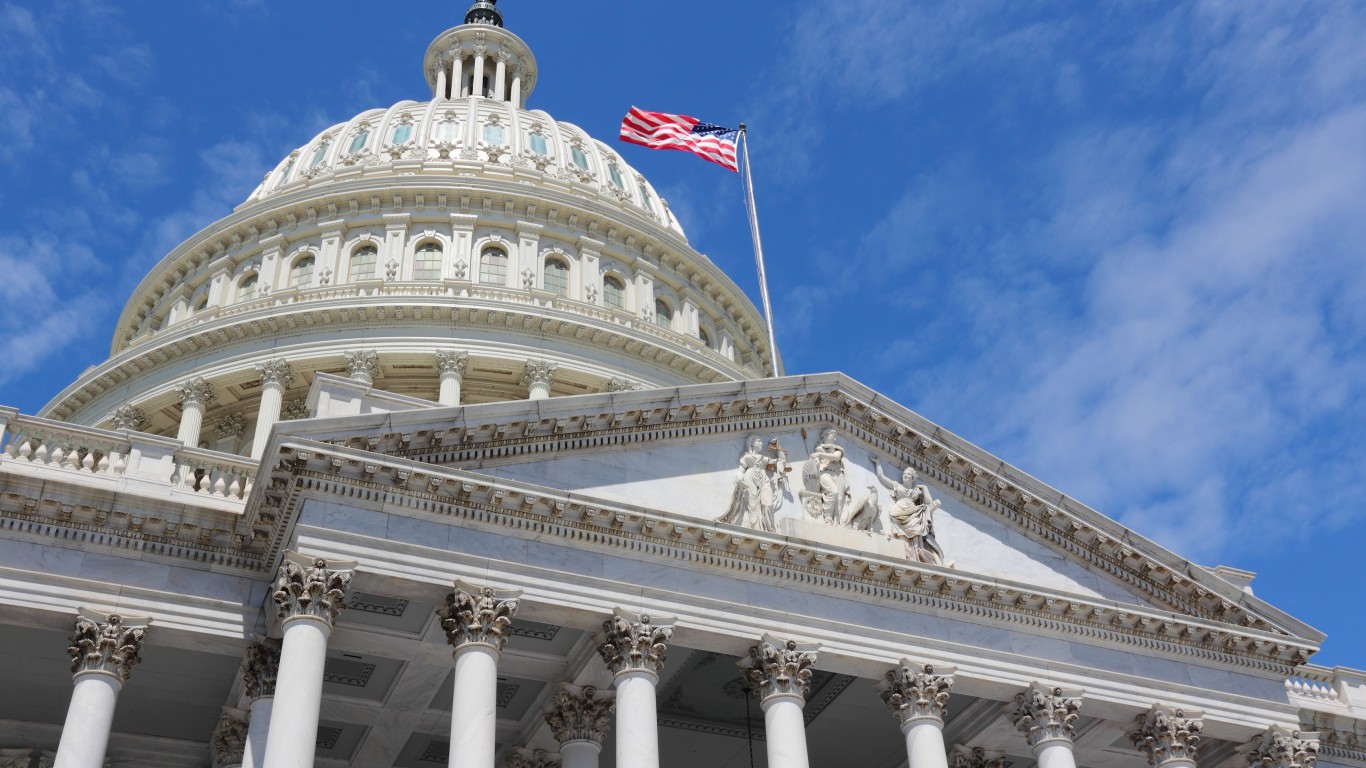
1. U.S. Government
> 2019 reputation quotient: 48.6
> 2018 reputation quotient: N/A
> Industry: Government
> CEO: President Donald Trump
Perhaps not that surprising, the federal government has the worst reputation of any company or organization on the Harris Poll list. Congress routinely scores low in Gallup Poll ratings– reaching as low as 9% in approval ratings in November 2013. Currently, the approval rating of Congress is 26% at Gallup. President Trump’s approval ratings have hovered in the 40% range, depending on which poll numbers are used.
The politically polarized environment of a hostile Democratic House of Representatives and a Republican Senate spoiling for a fight means gridlock on issues such as immigration and health care, which may only further drive down approval ratings for the government.
Ever wanted an extra set of eyes on an investment you’re considering? Now you can speak with up to 3 financial experts in your area for FREE. By simply clicking here you can begin to match with financial professionals who can help guide you through the financial decisions you’re making. And the best part? The first conversation with them is free.Click here to match with up to 3 financial pros who would be excited to help you make financial decisions.
Thank you for reading! Have some feedback for us?
Contact the 24/7 Wall St. editorial team.